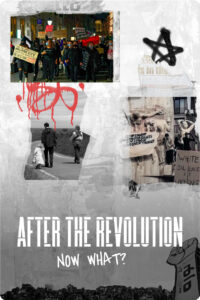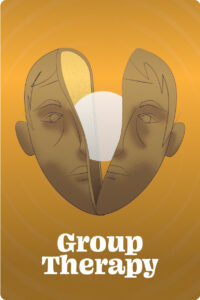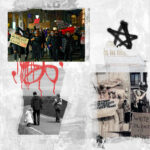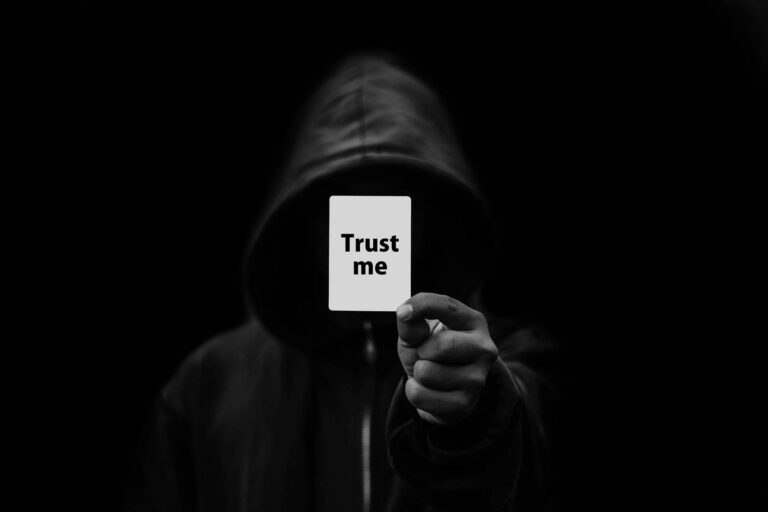“Allah Akbar.” This was the only Arabic expression I knew for a long time, shaped by the anxiety-filled atmosphere of terrorist attacks during my teenage years in France.
“Allah Akbar” means ‘God is greater,’ with the implication that ‘God is greatest,’ explains Catherine Pinon, a secondary ed teacher, associate professor of Arab studies with a PhD in Arabic linguistics. She explains, “It is an Islamic phrase. It appears for example in the call to prayer.”
Regrettably, the expression “Allah Akbar” has been appropriated as “the calling card of terrorist activities for extremist Islamist factions. Prior to death, Muslims are required to recite the Shahada, a declaration of faith affirming the uniqueness of God and the prophethood of Mohammed,” Pinon elucidates. For non-Arabic speakers, the Shahada is a relatively lengthy text, whereas, as Pinon explains, “‘Allah Akbar’ is simpler to memorize, making it an easily memorable tagline for journalists.”
The expression “Allah Akbar” is used on a daily basis, serving as a replacement to the exclamation, “Oh my God,” and denotes surprise, either positive or negative.
In 2019, I took the leap and returned to Lebanon to learn Arabic. The motivation behind this pursuit was not to become a spy or to try to understand “the bad guys.” I just found the language beautiful and had a love for the country.
When I shared my decision with others, it was greeted with a few questions, some grimaces, and lukewarm enthusiasm. It paled in comparison to the unanimous delight (even admiration) that my pursuit of advanced English had inspired in people when I was a teenager.
Before I learned Arabic, I had never been asked where I came from, as my family has been French for three generations. Now, it’s a recurring question whenever the person I’m speaking with learns that I’m studying Arabic. “Do you have Arab origins?”
According to Nabil Wakim, a journalist at Le Monde, who explains in his book “Arabic for Everyone – Why My Language is Taboo in France” the relationship of French people with the Arabic language and his own relationship with Arabic as a Franco-Lebanese: “Arabic is not just like any other language, since it is primarily considered a religious language. Writing, reading, speaking in Arabic means seeing the world first through the lens of Islam and the Qoran.” A misleading simplification: “Not only does the language pre-date the Koran, it is also the language of poetry and literature, containing erotic medieval expressions that would make priests and imams blush nowadays.”
On her end, Catherine Pinon underscores that the Arabic language “is the driving force of Islam in the same way that Latin was to Christian liturgy.”
My third language evokes suspicion, and any positive feedback I do receive comes almost exclusively from those connected to Lebanon or the Arabic-speaking world.
Do you have Arab origins?
On my “très chic” RER A train commute, my Whatsapp voice messages in Arabic inspire looks of disdain, especially when I say “insha allah,” another expression French tend to recognize. Needless to say, my British English accent doesn’t make people jump.
I’ve been asked a couple of times if I’m planning to convert. To what? To Lebanon? To Arabia? I studied Arabic at the Institute of Political Studies in Lille, France, followed by studies at a private Lebanese institute. All this, without ever taking classes inside a mosque. Also, my Arabic teacher is a Christian.
Once, while conversing in English and Arabic with friends who are very familiar with Lebanon, I used the term “mouhafazé,” which means “prefecture.” One of my friends, who is French, responded, “Be careful, the DGSI (Intelligence services) is listening to you.”
As Nabil Wakims explains, this “fear of Arabic words, of terms related to Islam, is something all people of Arab descent know about. I am no exception. Ever since I was a teenager, I’ve known that if I want to derail a conversation, all I have to do is drop one word in Arabic (even an invented one) into the exchange, and my interlocutor’s expression immediately shifts.”
On the subject of those from Arabic descent, before I learned Arabic, I had never been asked where I came from, as my family has been French for three generations. Now, it’s a recurring question whenever the person I’m speaking with learns that I’m studying Arabic. “Do you have Arab origins?” As though that’s the sole reason I’d study the language; as though the pursuit of learning Arabic wasn’t thrilling in and of itself.
These reactions and inquiries don’t impact my sense of identity in the same way as they might for French citizens whose native language is Arabic. Rather than viewing these questions as microaggressions that might undermine my sense of belonging to French society, I see them as manifestations of the patronizing attitudes my fellow citizens harbor toward Arabic dialects and their speakers, a legacy of France’s colonial history spanning several generations.
Given the value placed on diplomas in France, I suspected that Catherine Pinon’s agregation and thesis would win her some admiration, but apparently not. “It bothers many people that I teach Arabic, including several school directors who don’t want to scare students away by offering this class subject… The assumption is that solely children of Arab origin choose to learn this language. Racism coalesces around language,” she states.
There is also an assumed communitarianism, with the underlying idea that immigrants and their descendants are not sufficiently integrated.
Catherine Pinon notes that, over the years, the children of Arabic-speaking parents are losing their Arabic language skills. “From one generation to the next, Arabic is only passed on in 50% of families, which is a lower transmission rate than in Spanish or Portuguese-speaking families.” For Pinon, the use of certain Arabic words or phrases such as “wallah” (I swear to God) or “starfoullah” (God forgive me) allows individuals to: “reveal their belonging to the community, which is defined by exclusion. These young people place themselves in the category that society expects to see them in.”
Learning Arabic (Lebanese, specifically) has allowed me to confront my own society head-on. Now when I hear people speaking Arabic in France, I’m more interested in trying to guess what dialect they’re speaking in rather than being suspicious of their religiosity or beliefs. When I realize that my neighbors on the train are discussing constitution changes in Tunisia, I’m less inclined to assume that they only have one thing on their minds: run off and wage jihad. It’s a positive step in the fight against racism.
Empathy was likely instrumental in your acquisition of the Arabic language, since learning a language entails transcending one’s social and cultural norms
Bérangère Thirioux, doctor of neuroscience-neurophysiology and researcher of neuropsychopathology in psychiatric illnesses
Why is my sense of empathy so limited?
Learning Arabic wasn’t merely an internal process of reasoning for me. It required integrating this third language into my daily life, carving out space for it. Along the way, I’ve found that it has expanded my capacity for empathy.
Strangely enough, the discovery of my increased empathy was due to a natural disaster. On February 6, 2023, a massive earthquake devastated Turkey and Syria. I noticed that I was suddenly reading more articles, staying up to date on the situation in Syria and above all, watching countless videos of Syrian rescue teams.
I could understand what the rescuers were saying when addressing children impacted by the earthquake (including a little girl making a list of what she wanted when she got to safety – orange juice!). Approximately one million Syrians are said to be living in Lebanon at the moment. I attribute my immense empathy for them to this proximity. However, I’ve also been to Turkey and was fascinated by it.
This question of empathy has become even more pressing for me since the massacres committed by Hamas in Israel, and subsequently, the onset of the war in Gaza. The International Court of Justice ruled on January 26 that “at least some of the acts (…) committed by Israel in Gaza appear to fall within the scope of the Convention [on the Prevention and Punishment of the Crime of Genocide].”
Although the word “empathy” is often used in the context of personal development or valued in the corporate world, “it is first and foremost a psychic state (not a character trait) that adjusts according to the subject’s experiences, engaging several areas within different cerebral networks. The activity of these cerebral networks can be observed using neurofunctional imaging (MRI/EEG),” explains Bérangère Thirioux, a doctor of neuroscience-neurophysiology and researcher of neuropsychopathology in psychiatric illnesses.
“Being able to empathize means seeing the world from another person’s perspective without losing one’s own,” she explains. “We temporarily set aside our own viewpoints before reclaiming them.” This ability should not be confused with sympathy, “which involves merging with the other person’s perspective, experiencing it as if it were your own, and thereby losing one’s own viewpoint.”
Bérangère Thirioux is presently investigating the connection between learning foreign languages and empathy. I’ve finally found an expert who can address my query: Does comprehending the language of Syrians and Palestinians enhance my empathy toward them?
According to her, the answer is affirmative: “Empathy was likely instrumental in your acquisition of the Arabic language,” Bérangère Thirioux explains, “since learning a language entails transcending one’s social and cultural norms. Therefore, you must cultivate empathy toward the other culture.” In her view, it’s plausible that my comprehension of Arabic now bolsters my empathy toward Arabic speakers.
The scientist takes her research a step further: her findings indicate that acquiring a foreign language boosts our capacity for empathy, and conversely, being empathetic enhances our language learning abilities.
Help us tell the world to you !
Frictions is launching its club : by supporting Frictions, you’ll be supporting a community of authors and journalists who tell the world through intimate stories!

To arrive at this conclusion, she explains the neural connections between the regions of the brain involved in language acquisition and those activated during empathetic states. “There’s a significant overlap in the brain areas involved. Studies have revealed that mirror neurons, crucial for sympathy—and also integral to empathy—are situated, among other regions, in the left inferior frontal gyrus, including Broca’s area, which is the area that facilitates language production.”
Despite the potential for foreign language acquisition to enhance empathy, why don’t I possess equal empathy for Turks, Syrians, Israelis, and Palestinians, despite having mastered three languages? “In theory, one would expect this to be the case,” Bérangère Thirioux responds. “We should be able to momentarily set aside our values or beliefs, even in the face of distressing situations. That’s how genuine empathy should function. However, in practice, we tend to apply our empathy selectively, based on our own value system. Yet, since empathy can be cultivated and honed, we are also capable of extending it beyond our own value framework. It’s challenging, but not impossible. It’s crucial to remember that the goal is to comprehend the other person without necessarily endorsing their values.”
Amidst French legislative efforts aimed at curtailing the rights of foreigners, and a prevailing narrative in French politics advocating for an insular society (coupled with derogatory remarks likening Palestinians to “human animals” by Yoav Gallantthe Israeli Defense Minister), do you believe it’s imperative to cultivate our empathy skills?
The encouraging news, according to Bérangère Thirioux, is that “it’s never too late to bolster them.” And for those averse to language instruction, do not fear, for “you can begin in a straightforward manner by delving into literature… it fosters empathy!”
* Bérangère Thirioux is affiliated with the Pierre Deniker Clinical Research Unit at the Henri Laborit Hospital Center in Poitiers, as well as the Research Center on Cognition and Learning at the University of Poitiers / CNRS, and the University of Paris-Est Créteil.









